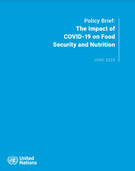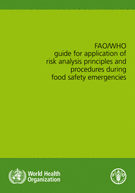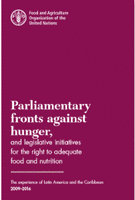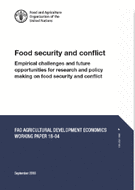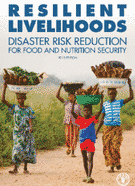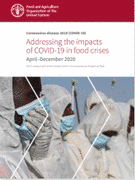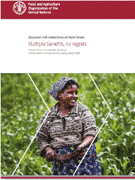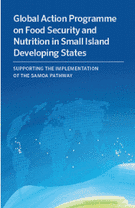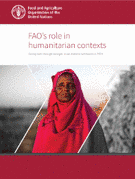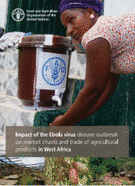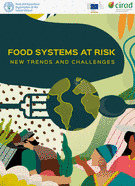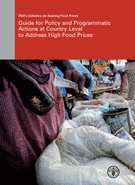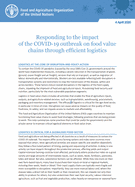The global economy is expected to contract sharply due to the impact of COVID-19. As countries move to strike a balance between keeping people safe and getting the economy back on track, they must protect poor and vulnerable people’s access to nutritional food. Even before the pandemic, world hunger was on the rise. A global recession could make additional tens of millions of people hungry, especially in poor countries that rely on food imports. Below is a priority list of FAO policy-related tools and publications that could help countries mitigate the risks of the pandemic on food security and nutrition.
1. Expand and improve emergency food assistance and social protection programmes to meet the needs of the most vulnerable people
With massive layoffs worldwide, families are struggling to put food on the table. More than 160 countries have closed schools, leaving 85% of children to miss crucial school meals. Food banks and community groups need to be mobilized to deliver food to families at home. Vulnerable households also need cash and moratoriums on household expenses, such as tax and mortgage payments. Countries should expand social protection programs to assist those who did not previously have coverage.
Featured Resources
2. Provide immediate assistance to protect smallholder farmers’ food production. Minimize the impact of social distancing and boost e-commerce of food business.
Restrictions on the movement of people are curbing farmers’ access to markets and creating labor shortages on farms. Fresh produce is accumulating, resulting in food loss. Farmers need cash subsidies and access to finance to maintain food production. Banks should temporarily wave fees on farmers’ loans and extend payment deadlines. Countries must bring collection centers closer to smallholder producers and invest in developing e-commerce to boost the sale of unsold agricultural products.
Featured Resources
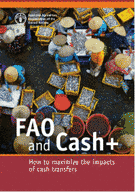
Guidelines & methodologies
FAO and Cash+: How to maximize the impacts of cash transfers
Extra measures should be put in place to assure the safety of farm workers. Onsite healthcare professionals can ensure workers are not sick by taking temperatures and ensuring they wear protective gear. Warehouses and processing plants should be re-engineered to enable workers to practice social distancing. Governments should expedite migrant workers’ visas to prevent labor crunches on farm and at plants. Supermarkets should reduce hours, rotate staff and ramp up their delivery services instead.
Featured Resources
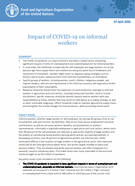
Policy Brief
3. Address trade and tax policies to keep global trade open
Countries that depend on imported food are vulnerable as shipments slow and their currencies plunge against the dollar. Most countries are likely to experience food price increase. Sudden and extreme food price shocks could occur amid drawn-out lockdowns.
Keeping the global food trade open is critical to keep the food markets functioning. Countries should eliminate existing export restrictions, including export bans. Harmful import tariffs and non-tariff trade barriers should be eliminated. Countries should also temporarily reduce VAT and other taxes to help stabilize the food markets.


